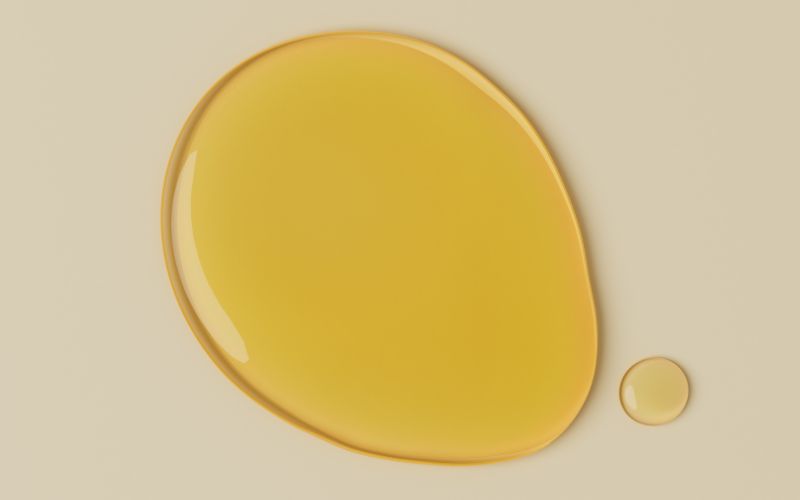Stress is a normal part of life, but chronic stress can take a toll on your body. Did you know that some simple dietary tweaks can help you manage it? Incorporating nutrients like Vitamin C and Magnesium into your daily routine can reduce cortisol levels and make you more resilient to stress. Let’s dive into how these super nutrients work and how Sol Nutrition’s Relax Me formula can enhance your stress-relief efforts.
Vitamin C: The Stress-Busting Superstar
Vitamin C, also known as ascorbic acid, plays a critical role in your body’s health. From bolstering your immune system to improving your skin, it’s one nutrient you don’t want to skip. And here’s the kicker: it’s also great for managing stress!
Vitamin C and Cortisol Levels
A 2023 study revealed that a daily dose of 1,000 mg of Vitamin C effectively lowered cortisol levels in women experiencing chronic stress. Cortisol, often called the stress hormone, spikes during stressful situations, but high levels over time can lead to health issues like anxiety, weight gain, and fatigue. By keeping cortisol in check, Vitamin C can help you stay calm and focused, even during hectic days.
Other Benefits of Vitamin C
Besides managing stress, Vitamin C offers a wealth of health benefits:
- Boosts Immunity: Helps your body fight off colds and infections.
- Promotes Skin Health: Aids in collagen production for youthful, glowing skin.
- Enhances Iron Absorption: Improves iron uptake from plant-based foods, which is crucial for energy and preventing anemia.
- Supports Brain Health: Acts as an antioxidant to protect your brain from oxidative stress.
Foods Rich in Vitamin C
Here’s a list of delicious foods to add to your grocery cart to boost your Vitamin C intake naturally:
- Bell peppers
- Plums
- Guava
- Kiwis
- Papayas
- Strawberries
- Rose hips
- Citrus fruits like oranges, lemons, and grapefruits
- Brussels sprouts
- Broccoli, cabbage, and cauliflower
For Those Who Cannot Take Vitamin C
While Vitamin C is essential, not everyone can tolerate it or benefit from it due to certain health conditions. If you fall into this category, don’t worry—there are alternatives.
Dr. Jing Liu, the renowned expert behind Sol Nutrition, recommends Astragalus as a natural substitute for Vitamin C. Astragalus is a traditional herb known for:
- Boosting Immunity
- Reducing Inflammation
- Supporting Stress Management
Astragalus can help your body combat stress and improve overall well-being, making it an excellent alternative for those who need to avoid Vitamin C supplements.
Who Should Limit Vitamin C?
While Vitamin C is essential, some people should use caution:
- Chronic liver disease, gout, or kidney disease: No more than 1,000 mg/day.
- Diabetes: It may increase blood sugar levels.
- Oxalate nephropathy or kidney stones: High doses can increase the risk of stone formation.
- Cancer treatments: Vitamin C may interact with certain chemotherapy drugs.
- Hereditary hemochromatosis: It can exacerbate iron overload.
- Blood disorders: People with thalassemia, G6PD deficiency, or sickle cell disease should avoid vitamin C supplements.
Magnesium: The Unsung Hero for Stress Relief
Magnesium might not get as much attention as Vitamin C, but it’s a powerhouse when it comes to reducing stress and promoting overall health.
Magnesium and Stress Resilience
Magnesium plays a crucial role in the nervous system, helping to regulate the “fight or flight” response. It can lower cortisol levels and support relaxation by activating the parasympathetic nervous system, your body’s natural calming mechanism.
Other Benefits of Magnesium
- Supports Heart Health: Regulates blood pressure and keeps your heart rhythm steady.
- Improves Sleep: Helps relax muscles and nerves for better-quality sleep.
- Promotes Bone Health: Works with calcium and Vitamin D to keep your bones strong.
- Boosts Energy: Aids in the production of energy at the cellular level.
Foods High in Magnesium
Want to boost your magnesium intake? Here’s what to add to your meals:
- Leafy green vegetables like spinach and kale
- Whole grains
- Beans
- Nuts and seeds
- Dark chocolate (yes, chocolate!)
- Avocados
- Legumes
- Tofu
- Fatty fish like salmon and mackerel
Sol Nutrition’s Relax Me Formula: Stress Relief in a Bottle
For those days when eating all the right foods feels like a tall order, Sol Nutrition’s Relax Me formula has got your back.
This doctor-formulated herbal blend combines the best of nature to:
- Promote a Calm Mind and Body: Perfect for stressful situations without causing drowsiness.
- Support Stress Resilience: Helps regulate cortisol and balance stress hormones.
- Enhance Focus: Reduces mental fog, so you can tackle your day with clarity.
Relax Me is packed with natural ingredients that work synergistically to bring you peace of mind while supporting your body’s stress response.
Must Read: What to Eat if You Have PCOS and High Testosterone
Nature, Nutrition, and Stress Relief
It’s no secret that spending time in nature is a fantastic stress reliever. Combine that with a diet rich in Vitamin C, Magnesium, and other calming nutrients, and you’ll create a solid foundation for stress resilience.
So, the next time life feels overwhelming, remember to take a deep breath, grab a kiwi or some dark chocolate, and let your body and mind relax. And when you need an extra boost, Sol Nutrition’s Relax Me is just a click away.
Stress might be inevitable, but with the right nutrition and a little help from Sol Nutrition, you can keep it from taking over your life. Here's to staying cool, calm, and collected!


Share:
Morning Routines That Help Keep Cortisol Levels Down
2025 Self-Care Checklist: Your Guide to a Happier, Healthier You